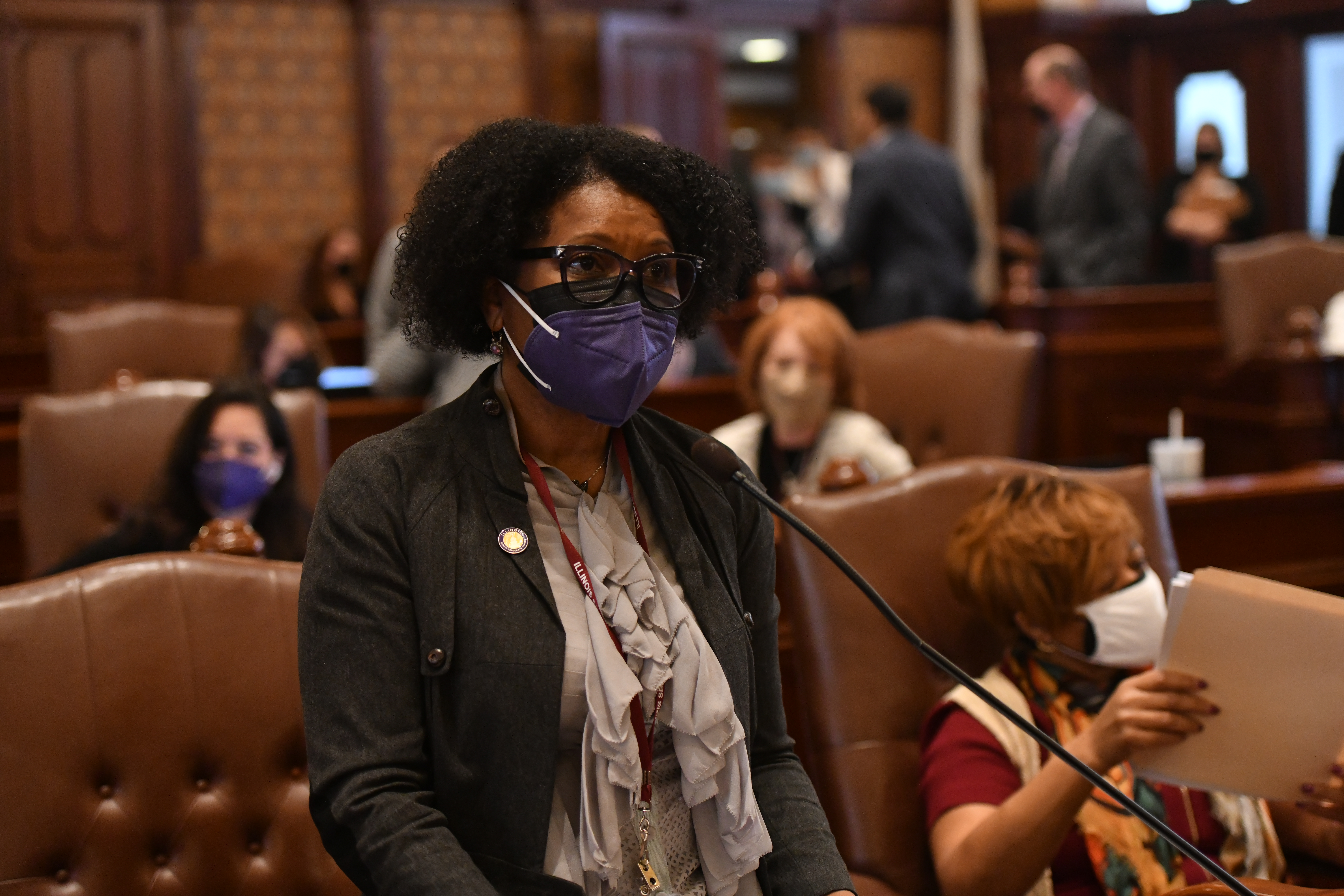
“Naloxone is a life-saving medication,” said Johnson (D-Buffalo Grove). “The more accessible naloxone is, the better chance we have at saving someone from succumbing to their addiction.”
The new law will prohibit insurers and Medicaid from charging a copay for naloxone – an opioid suppressant. Naloxone can be lifesaving for people overdosing on opioids, but can often be inaccessible with a cost of up to $140 for two doses.
 SPRINGFIELD – The governor signed a plan into law with support from State Senator Adriane Johnson to invest in child care services for workers with non-traditional schedules, such as law enforcement officers, firefighters, EMS personnel and more.
SPRINGFIELD – The governor signed a plan into law with support from State Senator Adriane Johnson to invest in child care services for workers with non-traditional schedules, such as law enforcement officers, firefighters, EMS personnel and more.
“First responders and other third shift emergency workers have difficulty finding reliable child care,” said Johnson (D-Buffalo Grove). “By creating the Off-hours Child Care Program Fund, Illinois is working to increase accessibility for parents in public service who work non-traditional hours.”
Previously filed as House Bill 1571, the new law requires the Department of Human Services to establish and administer an Off-Hours Child Care Program to assist first responders and other workers with access to off-hours, night, or sleep time child care. The program is appropriated $2 million in the Fiscal Year 2023 budget.
 WAUKEGAN – A new Illinois law adds stricter guidelines for catalytic converter sales to reduce thefts. The law was signed Friday with support from State Senator Adriane Johnson.
WAUKEGAN – A new Illinois law adds stricter guidelines for catalytic converter sales to reduce thefts. The law was signed Friday with support from State Senator Adriane Johnson.
“Working people are suffering the most from catalytic converter thefts, and the reported crimes are rapidly increasing,” said Johnson (D-Buffalo Grove). “This new law aims to impose stricter guidelines to prevent stolen car parts from being sold.”
The law, filed under House Bill 107, adds catalytic converters to the definition of recyclable metal which requires businesses to keep record of sales.
WAUKEGAN – With advocacy from State Senator Adriane Johnson, a new law in Illinois creates a new grant program to invest in behavioral health care specifically for first responders.
“First responders willingly serve at the forefront of each incident or disaster our community faces, and they help ensure the safety and well-being of our residents,” said Johnson (D-Buffalo Grove). “Because they are at great risk of exposure to traumatic situations, this grant program will allow more first responders to have access to supportive and responsive behavioral health services and treatment.”
Under the law, the Department of Human Services will create a First Responder Behavioral Health Grant program to fund grants available to local governments, law enforcement agencies, fire protection districts, school districts, hospitals and ambulance providers. In the Fiscal Year 23 budget, the state appropriated $2 million to the grant program.
Page 44 of 79